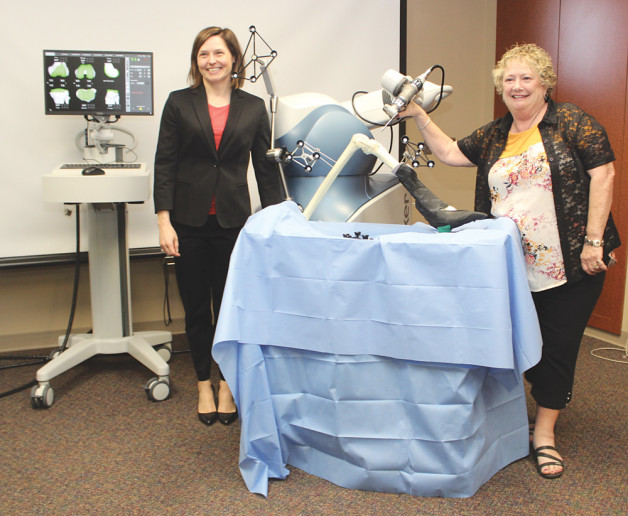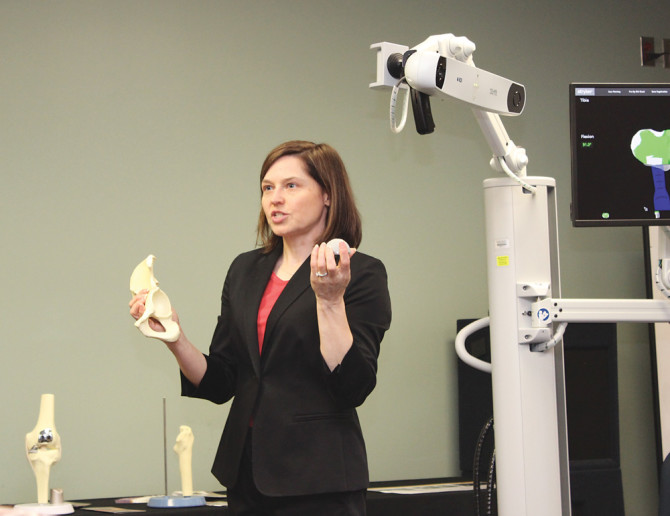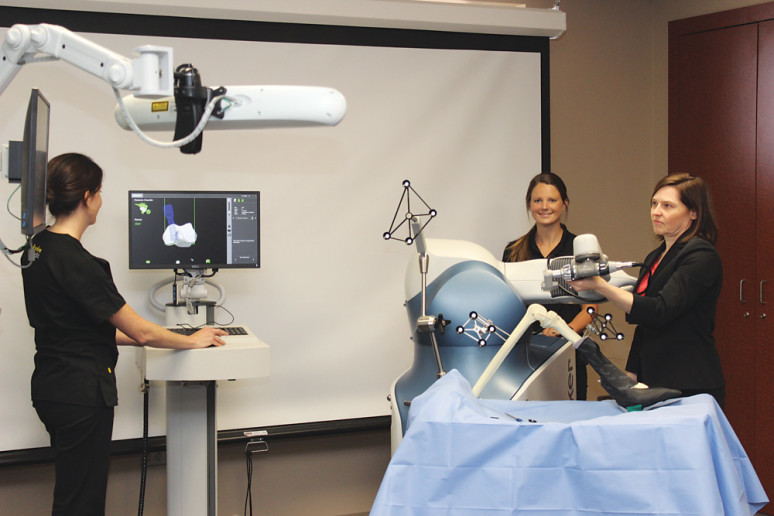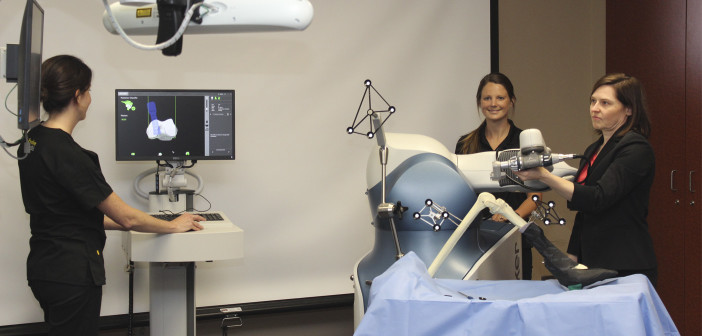The number of total knee replacements in the U.S. is expected to increase 673% (to 3.5 million procedures) by 2030, and the number of total hip replacements to increase by 173% (572,000 procedures). To better address this growing demand, McLaren Flint is the first hospital in the region to offer the latest advancement in orthopedic surgery, the new Stryker Mako Robotic-Arm Assisted Surgery System. The Mako system is transforming the way total knee, total hip and partial knee replacements are performed by enabling the orthopedic surgeon to provide each patient with a personalized surgical experience.

Dr. Willson poses with Judy Roach, the first mclaren flint patient to have a Mako robotic-arm assisted partial knee replacement.
Through CT-based 3D modeling of bone anatomy, the surgeon can use the Mako system to create a personalized surgical plan and identify the implant size, orientation and alignment based on each patient’s unique anatomy. The Mako system also enables surgeons to virtually modify the surgical plan intra-operatively as needed and assists in executing bone resections.
“With the Mako technology, I am able to create each patient’s surgical plan pre-operatively before entering the operating room,” noted Shawnn Willson, MD, the first orthopedic surgeon at McLaren Flint to utilize the Mako system. “During surgery, I am able to validate that plan and make any necessary adjustments while guiding the robotic arm to execute that plan. Our surgical team has information at our fingertips that we’ve never had access to before. The Mako technology provides a much more predictable surgical experience with increased accuracy.”

The Mako Total Knee application is a knee replacement treatment option designed to relieve the pain caused by joint degeneration due to arthritis. The Mako Partial Knee application is a treatment option designed to relieve the pain caused by joint degeneration due to arthritis that has not yet progressed to all three compartments of the knee. By selectively targeting only the part of the knee damaged by arthritis, surgeons can resurface the diseased portion of the knee, while helping to spare the healthy bone and ligaments surrounding the knee joint. Studies have shown robotic-arm assisted partial knee replacement to be two to three times more accurate than manual partial-knee replacement procedures. During surgery, the surgeon guides the robotic-arm during bone preparation to prepare the hip socket and position the implant according to the pre-determined surgical plan.
“We are proud to be the first area hospital to offer this highly advanced robotic technology to perform total knee, total hip and partial knee replacements,” noted Chad Grant, President and CEO of McLaren Flint. “This addition to our orthopedic service line further demonstrates our commitment to bringing the newest innovations to the community for advanced patient care.”

Seann Willson, MD, board certified orthopedic surgeon, demonstrated the Mako robotic-arm assisted system at a press conference held at McLaren Flint on May 30.














